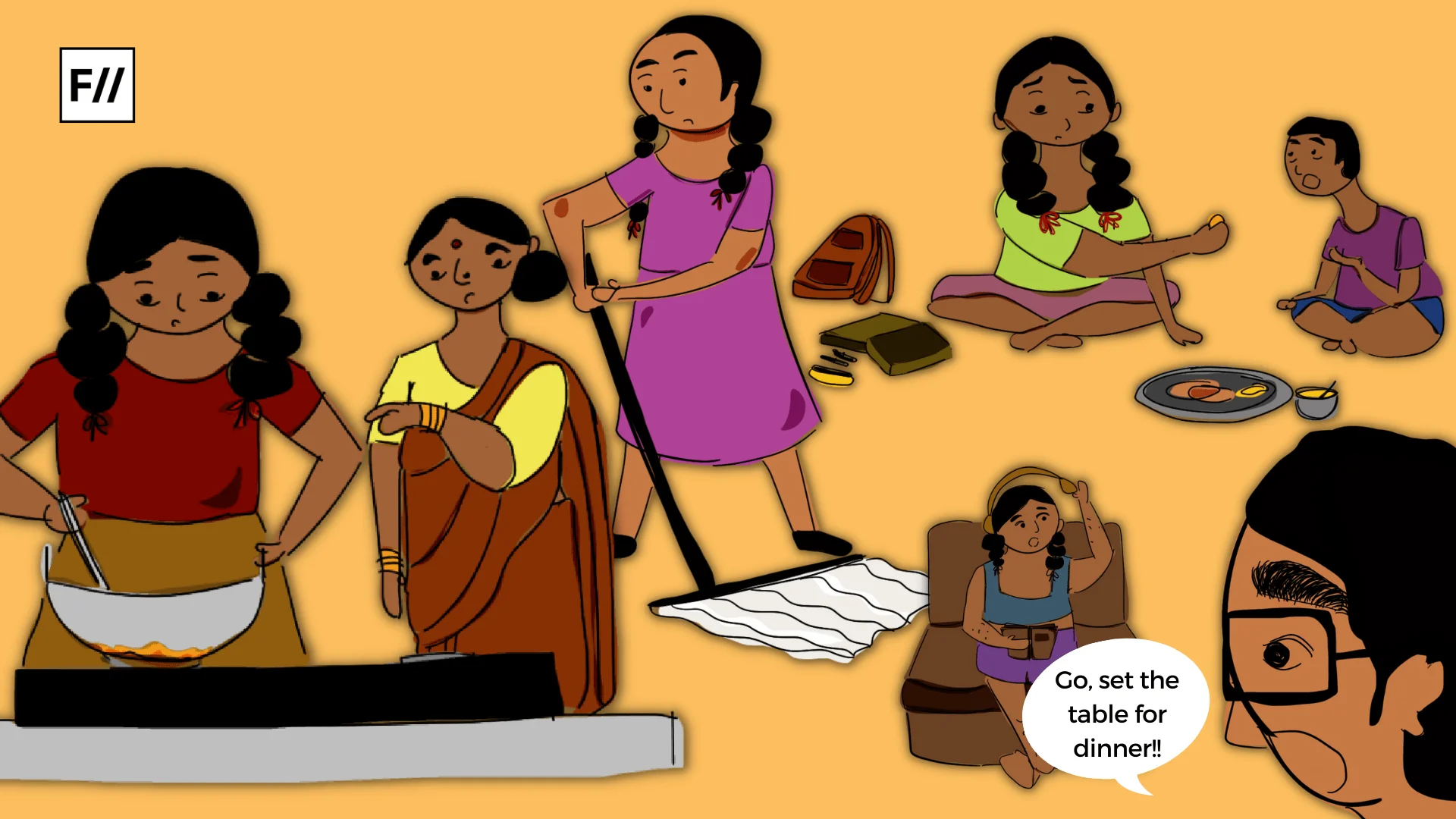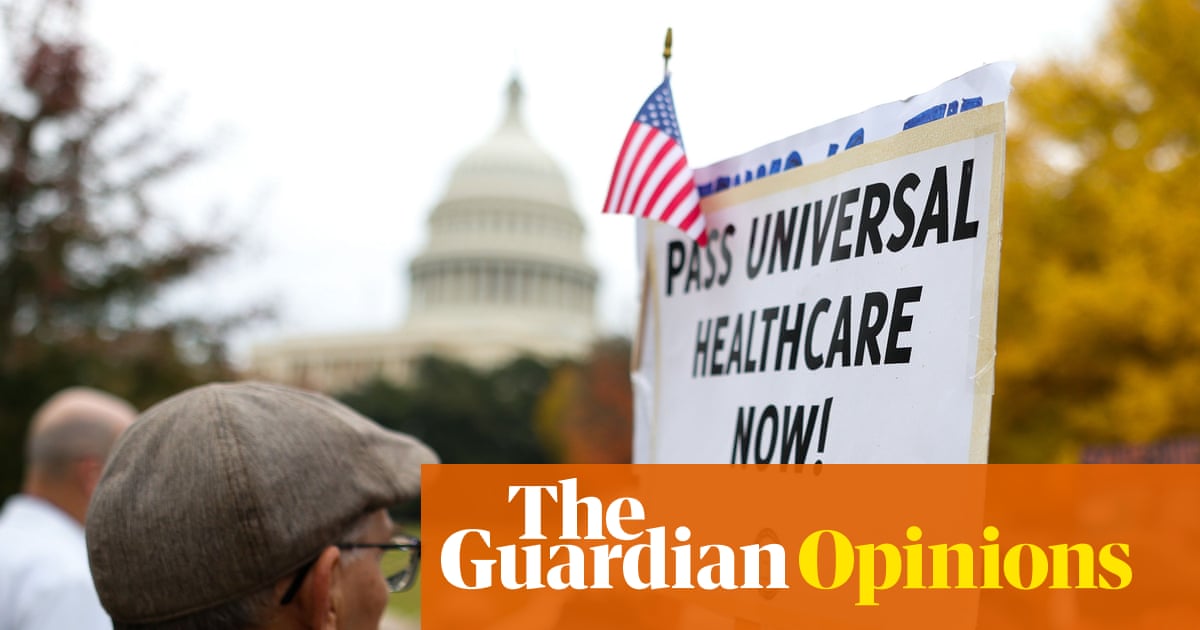How This Modern Spin On Medicaid Could Save The Healthcare Industry Millions

Think this is nice? It’s a version of the weekly Under 30 newsletter and would be even better in your inbox.
Courtesy of Fortuna Health
Nikita Singareddy sits in a recording studio across from Patrick Gilligan for the latest episode of his Self Disclosed podcast. Both are Under 30 Healthcare listers serving people on Medicaid through their respective startups, SaaS company Fortuna Health and mental health mentorship platform Somethings. The two are discussing what can sometimes feel like a balancing act in healthcare: helping people get healthier while driving financial outcomes for the customer who, in many cases, is not the patient.
“Building in healthcare, you can’t just have a shiny new toy,” Singareddy says to Gilligan. “You need a real solution to your customer’s problems.”
While there is no shortage of “shiny new toys” in the digital health industry, Singareddy and Gilligan would agree that Medicaid, specifically, is long overdue for a software update. The $870 billion government program offers free health insurance to 80 million Americans, but the current enrollment process is complex, slow and sometimes entirely paper-based.
Singareddy launched Fortuna and its user-friendly web-app in 2023. She and her cofounders Cydney Kim and Ben Wesner created the platform to make applying for Medicaid easier on customers. But it’s had a ripple effect across the industry.
Healthcare providers and insurance agencies—who foot the Fortuna bill—have a real incentive to onboard such a platform. Take Medicaid managed care organizations (or MCOs), for instance, that receive monthly payments from the government based on the number of members enrolled on their plan. If a member’s coverage lapses because of a missed renewal deadline or paperwork lost in the mail, the organization may have to perform uncompensated services. But by sending Fortuna-powered push notifications to members of MCOs like MVP Health Care (a partner of Fortuna), users are prompted to visit an online portal with instructions to access benefits. The service increased MVP’s retention rates to 98% since the beginning of their partnership.
Hospitals also benefit from a more efficient Medicaid experience. When uninsured patients go to an emergency room, their care frequently goes unpaid. Experts estimate that the cost of uncompensated care costs annually is in the tens of billions. However, Medicaid is unique in that it allows a patient to get coverage for their medical bills up to 90 days in the past. So if someone with medical debt can get enrolled in Medicaid before the end of that 90-day period (using Fortuna, perhaps), the hospital will get paid for the services they provided.
The many use cases for Fortuna show promise to investors. Last week Fortuna Health raised an $18 million Series A led by returning investor Andreessen Horowitz. Plus, President Donald Trump’s One Big Beautiful Bill Act puts even stricter oversight on Medicaid, making Fortuna’s services that much more needed today.
Learn more about Fortuna Health and how it’s set to heal some wounds following the Medicaid crackdown here.
More next week,
Alexandra, Zoya, and Alex
Thwarted By Regulators, Vindicated By Wall Street: Design Startup Figma’s CEO Is Now A Billionaire
Gabriela Hasbun for Forbes
In January 2024, Under 30 alum and Figma founder Dylan Field was hit with a wakeup call. His design startup had been slated to be acquired by Adobe for $20 billion. But after 15 months of back-and-forths, the deal fell apart. Yet this week, Figma went public on the New York Stock Exchange at a $19 billion valuation. Read more about the deal that made Field a billionaire here.
Lister Lowdown
-Saint Sass, a European retail startup founded by Under 30 listers Larissa Schmid, Vivien Wysocki, announced this week a $5 million funding round. It brings their total funding to $6 million, which will go toward expanding their line of viral tights to include swimwear, sleepwear, and more. Plus, they have plans to extend to the U.S. market, too.
-Musical duo Alex Pall and Drew Taggart, best known as The Chainsmokers, this month closed a $100 million fund III for their VC firm, Mantis. The 2019 Forbes Under 30 cover stars first launched Mantis in 2020 with a $35 million debut fund, backing startups across AI, technology, crypto and more. Their third fund, backed by LPs like TriplePoint Capital and Summit Peak, will be used to write checks between $500,000 and $2 million for early-stage tech companies.
-“Vibe coding” startup Lovable, cofounded by Anton Osika and 2025 Under 30 alum Fabian Hedin, has officially become the fastest-growing software startup in history. The platform lets anyone build a full-fledged app—no coding required. Just chat with the AI, describe what you want (say, a DocuSign-style tool) and Lovable takes care of the rest. Beloved by users, the company skyrocketed to $100 million in annualized revenue in just eight months. Read Lovable’s feature here to find out what kinds of businesses the platform has given life to.
One Minute with Cherry Beagles
We’re bringing you the scoop on a new Under 30 community member. Up this week: 2025 Europe Sports & Games lister Cherry Beagles. She’s the founder of The 400 Club, a strategy and consulting startup that works with brands like Arsenal FC, Nike, and more to connect female fans with sports.
The following has been lightly edited for length and clarity.
Your name is so fun. Where did the name Cherry come from? Oh my gosh, there is actually a backstory: When my parents were growing up, my dad called my mom “Cherry Pie,” that was his nickname for her. So when my twin and I were born they knew one of us was going to be called Cherry. When I came out, I was bright, bright red and I had a red mark right in the middle of my forehead. So straight away my mom was like, “that one’s Cherry.” My sister is called Daisy.
How do you start your mornings? It used to be on my phone, I’m not even going to lie. But now I’ve brought my phone into the lounge so I can’t go on it. Now, I usually wake up and have a matcha. I hate running, but I do usually go to the gym. I always listen to a podcast at the gym or on the way to the gym, and it’s either a sports business podcast or an episode of Founders, which goes through the biography of famous founders and their lives.
What’s a typical day-in-the-life? They’re all so, so different. I travel a lot for work, so I can either be doing panel talks and conferences about female fan strategy and women in sport, or traveling across town to see all of our brands and 400 Club members.
Those back-to-back coffee days with members include me sitting down with female founders, athletes, and creatives to go over what they want to achieve within sport over the next 12 to 18 months. And more formal meeting days might mean sitting with rights holders to come up with new ideas for activations, campaigns, endorsements, and partnerships for the new seasons.
What does your team look like now? We have a team of four: A social media manager, a chief strategy officer, a head of fund (because we are about to launch a fund), and then there’s me. For all of our projects we also hire freelance female creatives sourced from the 400 Club. We have essentially created a roster of videographers, photographers, stylists, editor-in-chiefs for big magazines and pull from there.
Is there anything day-to-day that you feel like you cannot live without? That’s a good one. The Calm app. I listen every single night to go to sleep.
Other than that, my days are so different that I think I’ve got a really high tolerance for chaos. So I don’t actually have too much of a routine or key products. I’ve trained myself out of comfort, even down to the products I use and what I eat on a daily basis.
I of course can’t live without my family, my boyfriend, and my twin sister. Founder life is so solitary sometimes, so I really love having them there. But product wise, I’m pretty minimal.
Is there an athlete that you really look up to? Chloe Kelly is one. Her attitude is something that I think women’s sports really needs; that kind of brazen, self-assured attitude. It’s similar to Ilona Maher when she said “I don’t get imposter syndrome, I’ve worked to get here.” You need those women. And I think Chloe Kelly definitely has that.
I also really love Cameron Brink. She’s done such an amazing job at building her own personal brand outside of the WNBA.
And Maya Sher, who is Misha Sher’s daughter. She’s 10 years old and is the youngest person to sign for Nike. She plays for Arsenal’s youth team and she’s amazing. She’s going to be the next biggest athlete ever.
What about on the business side of the industry. Anyone who you look up to? Domo Wells is incredible. She’s the creative director of Washington Spirit, and I think her ability to cut through the noise with merchandise and with creative is amazing. It’s just great to see that Washington Spirit appointed a creative director in the first place, let alone a female creative.
And Rheann Engelke, Ilona Maher’s agent. She has done some insane deals this year and the year prior. I think she set a new benchmark for partnerships within women’s sports.
Is there a dream collab or project that you are gunning for right now? Yes. I really want to do the WNBA All Star after party. I would also really love to do the ESPYs. These are all very America-focused because you guys do have huge, huge opportunities for sports.
What is something that you think people get wrong about the women’s sports industry? Oh gosh, so many things. One is that it’s a monolithic fan, or that it’s a one-size-fits all fan. I think that’s one, due to naivety, but two, due to its infancy. You’re never going to see subcultures emerge very clearly until you’ve given it time.
I also think there needs to be a reprioritization between fans becoming all around, 365 fans. I think there’s this misconception that the fans that show up for the key tournaments don’t have the propensity to stay. And I think that’s just because we’re using the wrong tactics, the wrong marketing, and the wrong collaborations to keep them there.
What’s the best piece of advice you’ve ever received? And the worst? Best piece of advice I’ve ever received is to hire slow, fire fast. And to keep your team as lean as possible. There’s this misconception that the bigger your team, the more successful you are. But I’d rather have five “A players” than 30 “B players.”
The worst piece of advice is very stereotypical, but it was “Don’t leave law, don’t leave the legal job. Keep on a traditional path.” If I had, I wouldn’t be doing what I am now.
What’s your favorite hobby outside of work? I’m such a nerd. I love cinema. I watch so much film commentary. I love listening to critic reviews of films, comedy run-throughs of films, or behind the scenes of production. Maybe it’s because I do a lot of production with campaigns and activations now, but I really love learning how films have been brought to life.
I also watch loads of tutorials on how to play certain instruments even though I don’t play at all. I’m just curious as to how you get to that place. Is that the weirdest thing?
Want to hear more from Beagles? She’s joining us at the Forbes 30 Under 30 Summit this September. Grab your ticket here.
link






